A Framework for Allocating Extra Cash
Last week I let you in on a secret: having enough money is a lot less about how much you take in and a lot more about how well you manage it. This week I’m here to provide a framework for dealing with extra income dollars (and remember, whether you can envision it or not, that IS what’s headed your way if you get good at budgeting)! If you don’t believe me go back and re-read Part 1 of this series.
I’ll be using an agricultural metaphor for my framework below (I’m in good company, there) and, in it, you’ll find categories for deploying excess monies that come your way (what we call “slush”!). Again, this is a plan for what you’ll do with EXCESS money that’s left over when your income exceeds your budget. (An exciting, maybe never-before-considered prospect for many of us!) Ready for the model? Here we go:
1. Weeding
If your garden has ten weeds and you pick one every day, how many weeds do you have in your garden after ten days? Exactly- about a thousand. When you find that you’re dealing with weeds (that’s what we call financial problems that grow without your help, or have the potential to wreak havoc on your plans… I’ll list some below), you need to address them FIRST, and you need them ALL THE WAY DEAD to have peace in the rest of your garden. These weeds are so important to uproot that, whenever possible, you need to put their poison (if you will) right into your normal (income) budget. When it’s not possible, because you’re budget’s packed so tight, ALL your slush goes toward “weed killer” until they’re dead. Got it? This is important, kids. Do this meticulously and you’ll have these suckers crushed in no time.
WEEDING ITEMS INCLUDE
- Consumer debt: It grows even when you make the minimum payments! High interest! It wants to eat the life away from your housing, transportation, clothing, education, spiritual capital, relationships… everything. Kill it my friend. Mercilessly and without hesitation. It’s bad.
- Emergency Funds: If you don’t have enough cash on hand to deal with a medium-sized emergency like a broken vehicle, multi-week unemployment, or a busted water heater, you’re almost in the same spot as the credit card debtor. You’ll have to go into consumer debt (putting weeds INTO your garden! What!?) just to ride out the (inevitable) storms of life. Instead, use slush to build a fund by which you’ll ride out those bumps in the road. You need an emergency fund. (We’d recommend 3 months of your home’s operating costs.)
- Disposing of anchoring assets: Maybe you got a bonus a year back and you used it to make a down payment on a fancy car. That thing is now costing you tons of money that you don’t really have, just to insure and maintain. It’s now worth less than you paid, so you’d actually have to come up with some cash just to sell it. Gross. Assets like this will keep being worth less and less – it’s usually a good idea to rip off the bandaid (especially if you bought them with some debt), unload this anchor, and move away from it into freedom. That costs money. Kill that weed.
2. Pruning
I think of this bucket as tending to the stuff you’ve already been entrusted to steward. Fail to prune and you’ll lose the whole crop. Matthew 25:29 is a brutal verse. It says, “Whoever has will be given more, and they will have an abundance. Whoever does not have, even what they have will be taken from them.” As each of us are entrusted with assets, we find ourselves facing a test: can we manage what we’ve been given? We reaaaaaally need to have a good answer for that question.
For instance, this is why I don’t own a vacation home. The question isn’t, “Would I like to have my own place I could go to whenever?” That is a nonsense question. The question is, “Can I handle pipes freezing in another state and lawn maintenance and housekeeping and pest control for a house that’s hours away from mine?” For where I am in my life and career, that answer is no. We’ll keep going the rental route for now, thank you.
Like the weeding bucket, we think pruning items should be in your income budget when possible. But, if you’ve allocated all of your income and found that you don’t have any left over, they have GOT to be in your slush plan. With the pruning bucket we are in new territory: you don’t have to do all of these things before moving on to the planting bucket, below. For example, you don’t have to pay off your house in 5 years… (often that’s a terrible decision, anyway).
PRUNING ITEMS INCLUDE
- Paying down non-toxic debt: This could be debt on cars, student loans or homes that isn’t growing faster than you’re paying it down. Still a good idea to get out from under it, but you’ll want to apply some judgement. It can be lived with far longer than that nasty consumer debt.
- Insurance: Expect a whole series from us on insurance, but the gist is that you can steward future streams of income just like you steward cash in your bank account. It falls in the pruning category because, for example, if you’ve been entrusted with children and your sudden demise would leave them financially desperate, you owe it to your generations to come up with a plan for their long-term care sans you. Your insurance plan is your plan for caring for them (at least financially. There’s much more to think through on this topic… so I’ll just move on).
- Giving (meeting needs within our community): Part of the reason why you’ve been entrusted with money is because your Father thinks you’ll be good at meeting needs with it! Those needs could (and will) be taking care of orphans and widows. They could be funding teachers and ministers who are devoting all of their time to preaching the gospel. Etc. Etc. Tend to these needs as if they were your own, because… they are.
- Basic Retirement (this includes extended family, honoring your father and mother): We save money so that we will not be reliant upon selling our time forever in order to meet our basic needs when we get old. We use all sorts of tax-advantaged and employer-assisted accounts for this. We also allocate enough funds to take care of our parents should they need it (it’s not gonna be the Ritz, but my wife and I are ready and able to meet our parents’ basic needs should it be necessary. It hasn’t been so far… but that doesn’t change my responsibility or desire to prepare for that possibility). Here’s a shot in the arm for ya: Jesus said it is more important to take care of your parents’ FINANCIAL needs than it is to give to the temple. Care of your parents IS a part of pruning your garden, NOT a bonus, graduate-level, “if you’re a giving all-star” type of thing. This could be a whole article on its own so I’m just leaving that there for now.
3. Planting
Here’s where it gets fun, and we get to ask, “What opportunities are being presented to us to grow something new – ministry, skills, assets, etc.?” We keep an ear to the ground all the time listening for opportunities that we might add to this list. Most of the things on here are me trading some financial capital for shots at much more financial capital – but planting isn’t limited to that. In my planting, I’m looking for territory-expanding opportunities. This is not where I would put my money for my local church, or for taking care of my friends who are dealing with unemployment or sickness – that is pruning (as they’re things entrusted to me because the LORD put me into a community, in part, to meet those needs). This IS where I would put ideas like “I wonder if we could expand our spiritual territory if we put some money behind a community ballet school? Would that expand the Kingdom in my city?”
PLANTING ITEMS INCLUDE
- Investing: Starting companies, putting dollars into other people’s companies, investing in the stock market, etc. Matthew 25:14-30 is a clear-cut story about investing money, told by none other than Yeshua himself. If you still have questions about whether a disciple of his should be investing money for the future, I point you here, here, here and here for supporting evidence.
- New assets: Purchasing a home, land or assets that can provide income streams for the family over time.
- Giving: Starting new things that have potential to expand our borders or impact those outside of our (current) reach. This planting giving is not meeting of needs inside of your community – we talked about those above. This is sending dollars and people, trying new ideas and strategies and in some cases it’s more risky (and exciting too) than baseline giving. As with investing, we are always looking for a good return on this money–though it may not be a financial return.
4. Harvesting
I’ll define the harvesting bucket as places where you spend money or give money (meaning you’re not getting an asset back – we’re trading financial capital away here) for the enjoyment and blessings that it can bring. I’d put luxury spending here as well as opportunities to bless others (not meet basic needs or start new ministries). The picture is that harvesting is about actually USING UP the crop of dough… it’s NOT for making more somewhere along the line. This can be as simple as treating my pack of pals to some burgers, or as involved as a considered decision to take the family for a few weeks in Europe. The main distinctive here is that you’re buying a thing that is NOT going to increase in financial value (if it might, it’d be Planting). Of course even our luxury and gifting money should be thought of in the vein of using unrighteous wealth to gain friends for the sake of the Kingdom (hooray for this amazing transformation!), but we’re not buying wine here because it’s going up in value (we’re going to drink it with our neighbors). Since you’re a man growing in wisdom, I can’t help but know that, even as you put money into this bucket, you’ll be gaining back some more valuable capitals like physical, intellectual and spiritual growth. Just can’t help it: money well spent grows other capitals. Every. Single. Time.
HARVESTING ITEMS INCLUDE
- Travel, vacation and rest: These are all great reasons to trade up some of your financial capital for spiritual, relational, physical, and intellectual capital. Take your whole crew somewhere that will delight, educate and spiritually instruct. Or spend a week at home on a project that you’ll both enjoy and that might make the 50 non-vacationing weeks of the year that much better. Thank us later.
- Luxury: If you haven’t already read our initial thoughts on luxury, please click the link! Some of the money with which you’ve been entrusted is meant for your enjoyment – we have a Father who loves to give good gifts!
- Blessings to others: Gifts for people, extra rewards, treats or experiences for your wife and kids, etc. To wit: Unless you know for certain that she hates them, buy your wife flowers at least once every few weeks. (Nobody ever accused us of failing to provide actionable tips now did they?)
And there you have it! WEEDING, PRUNING, PLANTING, and HARVESTING! Create a plan around these buckets and when you get that tax refund here in a few days, you won’t have to go through the pain of blowing it on crap that won’t make your life any better. AND- if you are hungry for a real-life example, I’m going to provide a snapshot of what my family’s current slush plan looks like. A lot of thought goes into this for my family because we set our budget planning for only one of our two incomes, and allocate the rest as it comes in per the snapshot that I’ll share in the next post. This provides us some extra agility should we feel called to move out of a dual-income scenario. Since we’ve already been living that way, it would be no sweat. (It’s kinda like LoDoFeb for life!)
Once you’ve got all this firmly in your grasp, well then you my friend are ready for the next installment.
*Mark Parrett is one of the founders of Abraham’s Wallet. When not blogging for you here, he’s raising a family in Salt Lake City, UT and working as a financial planner at Outpost Advisors.






